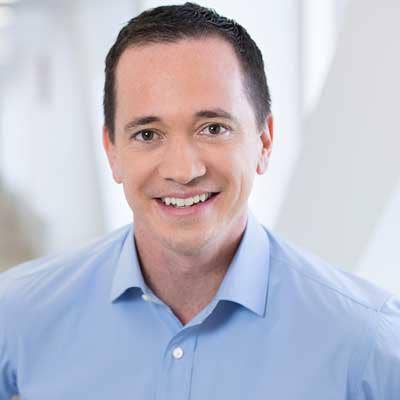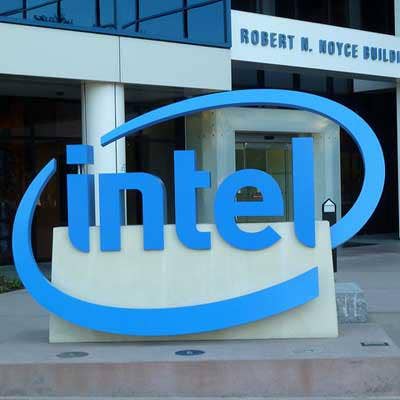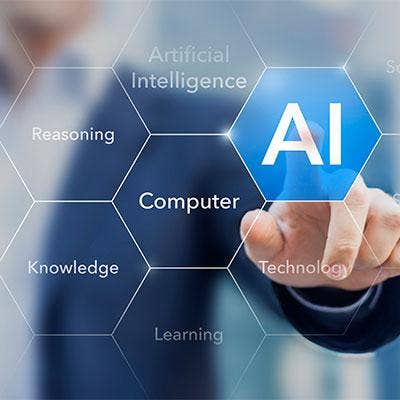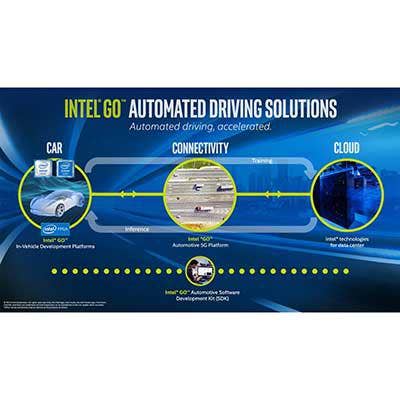CRN Exclusive: Intel VP Moreno On Ramping Up Efforts Around IoT, Data Center And AI For Partners

Intel's Partner Push
Partners have been urging Intel to focus more on solutions rather than products -- and Intel has gotten the message, said Ricardo Moreno, vice president and general manager of global partner sales at Intel. "Customers are asking for it, partners are asking for it," Moreno told CRN in an exclusive interview during Intel Partner Connect 2018 in National Harbor, Md. At the conference, Intel unveiled plans to dramatically scale up its "market-ready" Internet of Things solutions this year, and to also introduce a new set of data center solutions. The Intel Select Solutions are designed and validated by Intel, and optimized for specific workloads, as a way to remove the guesswork for partners.
Meanwhile, Intel also debuted new programs for partner specialties in enthusiast gaming and AI -- which demonstrates that Intel is shifting its strategy to reward more than just sales volume, according to Moreno. "We've had, historically, a very successful partner program that was primarily volume-based. It worked really well for the business that it was supporting," Moreno said. "But as we have the different business needs, volume is not enough."
What follows is a portion of Moreno's conversation with CRN.

What are your priorities for channel partners in 2018?
Intel is going through the biggest transformation in our history. PC remains super strong -- we're growing, it remains very profitable. But often we are going to be talking about 'and' instead of 'or' -- meaning, PC remains super strong, but we are becoming a data-centric company so we need to adjust to that. At the same time, there's a major transformation going on in the partner environment. So the partners are hearing from customers, 'You need to know my business. You need to have specialized solutions.' At the end of the day, [a solution] is more than a piece, it's something that addresses a critical business problem. And as you combine that need to know the customer's business really well and the expectations that they have of solutions, more and more partners are saying, 'I can't do it alone. I need to depend on other partners to work with me.'
So when you get those big vectors of change together, my biggest priorities have to do with how do I implement a partner strategy and the supporting programs that can address those needs? We've had, historically, a very successful partner program that was primarily volume-based. It worked really well for the business that it was supporting. But as we have the different business needs, volume is not enough.

What are the key elements for the new partner strategy?
The first big one is we're going to promote solutions. Customers are asking for it, partners are asking for it. Some partners are doing extremely well, some partners are coming and saying, 'I want to be there, help me get there.' The second critical piece is connecting the ecosystem. The whole idea is that we need to connect the partners. A lot of what we do is connecting people who are building things to people that are building bigger things, but need components for them. For a long time there was an ODM to OEM relationship. Now we have ISVs, now we have cloud service providers, now we have large systems integrators coming and saying, 'I want to be part of that as well.'
The third key one -- the only way we're going to get to this place -- is if our partners innovate and differentiate. So to do that, we want to recognize those that are doing that. Most of my historical programs didn't recognize the partners' differentiation as much. We need to start to give more [recognition] to that. And the final piece is, as we introduce new technologies, we will put a stronger focus on those partners that are driving the adoption of [the new technologies].

What concerns have you heard from partners about the changes to the partner strategy?
The feedback has been generally very positive. When the concern is there, it has to do with, 'Hey, I'm hearing signs from Intel that you are telling me to go in this direction. I've been in this other place before. What's up?' And my perspective on that, and my comment back to the partners, always is going to be, what is happening in the industry? What is the industry telling you? What are your customers telling you? And I always talk about the fact that, [the partner is] here because you've been a successful company. And if you've been successful, you had to adjust. So tell me about what kind of adjustments you made.
The point I always make is not everybody has to get to the new shiny object. But as an ecosystem, we've got to be balanced. It really goes back to one of my four cornerstones of the strategy -- innovate and differentiate. You don't have to innovate and become a data-centric company as we are. Innovation could be business model, innovation could be consumption, innovation could be so many different things. So the concern that I hear is, 'How can I be part of that?' And not as in, 'No, no, don't go there with that strategy.'

For partners that have focused on your traditional business, what's your guidance to them about how to get started with IoT? Is it the IoT-ready solutions?
I won't always advise them that they should [get involved with IoT]. But once they think it's the direction they should go, I think it's a very good direction, a very powerful direction. And this is exactly why we introduced the IoT market-ready solutions. Partners come back and say, 'I want to play [in IoT], but it's too much for me to put together.' So we think it's part of our job to facilitate [solutions] for them. It's also part of our job to educate them on the possibilities, and through that, help shape their strategies and influence their decisions.

With scaling up IoT market-ready solutions, is that from getting a lot more partners involved, or from scaling up with existing ones?
It's really a combination of that. I think the scale is going to come from three areas: selling more of the current solutions with the current partners, new partners coming up and new solutions coming up. We now have 61 of those [IoT market-ready solutions] that've been deployed and are commercially available. We're going to have more. I don't have a number, but we're going to have more options for the partners. The menu is going to increase. So it really will be a combination.

On the Intel Select Solutions, how big of an opportunity is that for partners?
I can talk conceptually on that. We think it's huge. Data center is a major growth area for us. And it's not just us. If we believe in data-centric, and we do, you cannot do that without data centers. And so the opportunity is very, very big. But the complexity is also significant. So, very similar to the concept of [IoT] market-ready solutions. The goal is to facilitate the work for the partners. What we think here is, for those that have a practice and a business around data center, we're just making it easier. We did the work, we validated this, this works for [a certain] workload with [a certain] performance threshold. And if you're helping your customers find out what is right, and that fits the workload and provides the kind of threshold expectations that they have, your job is that much easier.
I think it is a pretty flexible approach, because at the end of the day it's going to depend on which of the designs that we validate. And that's a very new thing -- it's just coming out now. Market-ready solutions have been here for about a year [but] Select Solutions just came in. But as we start to increase our inventory of solutions that've been approved on that process, then we're going to have a big reach. We're not there yet.

For the AI and enthusiast gaming specialties, part of the goal I assume is for partners to make more money with these solutions than they are currently?
The fundamental idea behind that -- back to my volume and value conversation -- is that if you think about our largest program today, ITP [Intel Technology Provider], it is primarily a volume-oriented program. Within the large community of ITP partners, which buy our products from distribution and take to market, we have groups that have chosen to focus on one portion of our business. Enthusiast is one example. Gaming is big, big business for us. And I believe that what partner programs exist for, among other things, is they should be the road map for the partners on where Intel is going. Or where Intel would like to see [partners] going. Naturally, partners have to decide their own path. But we want to see partners investing in the enthusiast PC arena. We want to see them going there.
Two things are going to happen with the launch of a specialty like this. You're going to see partners that maybe were not there just yet, starting to make the decision to go, because 'Hey, Intel is giving me a path, Intel is supporting me on that business.' But absolutely, there are going to be strong players there that we want to recognize. Those guys are already doing very good things for us in that arena, but we're not giving them something specific associated with that. So yes, there are going to be incentives associated, but it's also a visibility perspective. We want the market to know [that] this partner has performed with Intel and indicated that they are very good in this area. We're also going to give them early or sometimes discounted access to apps, to games, to titles. This is something that partners often ask for.

On the AI specialty, what Intel technologies is that connecting partners with?
The AI [specialty] is coming in Q3, so we are still working on the details there. But I can go as far as telling you the whole idea is to work with experts in that field, partners that have a practice around AI, that are building their solutions leveraging the Intel AI architecture. And that's probably as far as I can go.

In terms of other newer technologies, such as drones and connected cars, are there channel opportunities around those?
We have what I would call frameworks and initiatives around them. The technologies we've been talking about today, they are much more in a scaling capability. The technologies you mentioned, they are in a different stage. So I'm not [looking] to drive that to a scale level for [partners.] ... I'm a believer that nothing happens in the industry without the ecosystem. Naturally, depending on where you are, there are more or less players, more or less integration, and so on. But the ecosystem is a critical part of how we play. I think [automotive] is a critical area for us, but it's an area where the go-to-market conversations are still happening.

Are there other specific changes to your partner program that are being rolled out now?
For me we're not changing the partner programs -- we're changing the strategy. Yes, the programs are a portion of that, but what's really important is evolving the strategy, evolving the way we think about the ecosystem. Yes, we're delivering program changes that enable that, that are very tangible, but more than that it's really rethinking the strategy. ... Many of the things we just discussed do come with dollars -- they do come with investments and supporting elements. To enable this strategy, we're starting with some very key deliverables, but there'll be more things coming.

What are you telling partners about how much change to expect going forward on the partner programs?
We're telling them that there's a lot of change coming. Intel's changing, the industry's changing, you partners are changing. That's why we're bringing a whole new strategy. The reason I keep going back to the strategy is the strategy really is the platform for everything else I'm going to execute. So, partners can definitely expect more to come. And it goes more than just 'expect' -- what we're doing here is very much in line with what the partners are asking. Partners had the need, and they're asking us to help them through that. ... Change can be great. What is critical to keep in mind is there are a lot of things around us that we don't control, that are changing. So we need to work on those that we control to make sure I provide the partners the best possible opportunity to win and to succeed with us. And at the same time, there are things that don't change, [such as] our commitment to them. We are a partner-oriented company. We go to market with partners, we depend on partners. So the principles remain very strong.